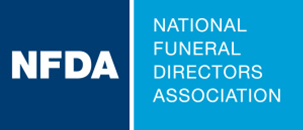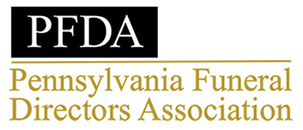
Dealing with the loss of a loved one can be a difficult and overwhelming experience.
But it’s important to remember that there’s no right or wrong way to grieve, and everyone processes their emotions differently. So allow yourself to grieve, give yourself time, seek support, take care of yourself, honor your loved one, and seek professional help if needed.
But since there’s a period within which the funeral arrangements need to be made, the emotions that come with such a loss paired with the stress of arranging a funeral can be overwhelming. Having a funeral arrangements checklist can help reduce this stress by providing a clear roadmap of what needs to be done. A funeral arrangements checklist can help you organize your thoughts and make sure that you have considered all the important aspects of the service.
There are many details to consider when planning a memorial service and having a checklist ensures that all the necessary details are addressed and nothing is overlooked. In this blog post, therefore, we have put together a list of the elements you may add to your funeral arrangements checklist.
1. Notify family and friends
The first step in arranging a funeral is notifying family and friends of your loved one’s passing. This can be a difficult task, but it’s important to do so as soon as possible. You may want to delegate this task to a family member or friend who’s better equipped to handle it through an obituary.
2. Hire a funeral service provider
Once family and friends have been notified, the next step is to hire a funeral service provider. A good funeral service provider can assist you with the rest of the steps in your funeral arrangements checklist and may even take over some of the tasks entirely.
3. Choose a funeral home
Next, you’ll need help choosing a funeral home, funeral parlor, or mortuary. Funeral directors can guide you through the entire process, from selecting a casket or urn to arranging transportation for the deceased and their family.
4. Determine the type of service and venue
The next step is to figure out the type of service your loved one would have wanted. This may include a religious service or a celebration of life. Once you have decided on the type of service, you will need to choose a venue for the service: a church, outdoor space, or the funeral home itself.
5. Select a casket, urn, or burial container
If you’ve opted for a traditional funeral, you’ll need to select a casket or burial container for your loved one. If you’re opting for cremation, you’ll need to select an urn. Funeral directors can help guide you through the selection process.
6. Decide between burial and cremation
Once you have chosen a casket or urn, you’ll need to decide between burial and cremation. This may include selecting a cemetery or crematorium. It’s important to consider what your loved one would have wanted when making this decision.
7. Choose flowers or decorations
You may also want to consider flowers or other decorations for the service. First and foremost, flowers are a way to express sympathy and condolences to the family of the deceased. They are a tangible way to show support and offer comfort during difficult times.
8. Organize music or memorabilia
You might also want to select music or other special memorabilia to include in the service, such as a photo slideshow or video tribute. This can help make the service more personal and meaningful, allowing all attendees at the service to celebrate the life of your loved one.
9. Consider special requests or traditions
You may also want to consider any special requests or traditions that family and close friends want included in the service like a eulogy, religious or cultural traditions, or any special requests that your loved one may have had.
A funeral arrangements checklist will help organize preparations during this difficult time
Having to take on the responsibility of organizing the funeral of your loved one while you’re grieving yourself is too daunting of a task to handle on your own so you should look into getting the help of a professional funeral service provider.
During this process, a funeral arrangements checklist is an essential tool for planning a funeral or memorial service. It can help reduce stress, ensure that important details are not overlooked, organize your thoughts, keep track of tasks and expenses, assist you coordinate with others, and personalize the funeral service.



